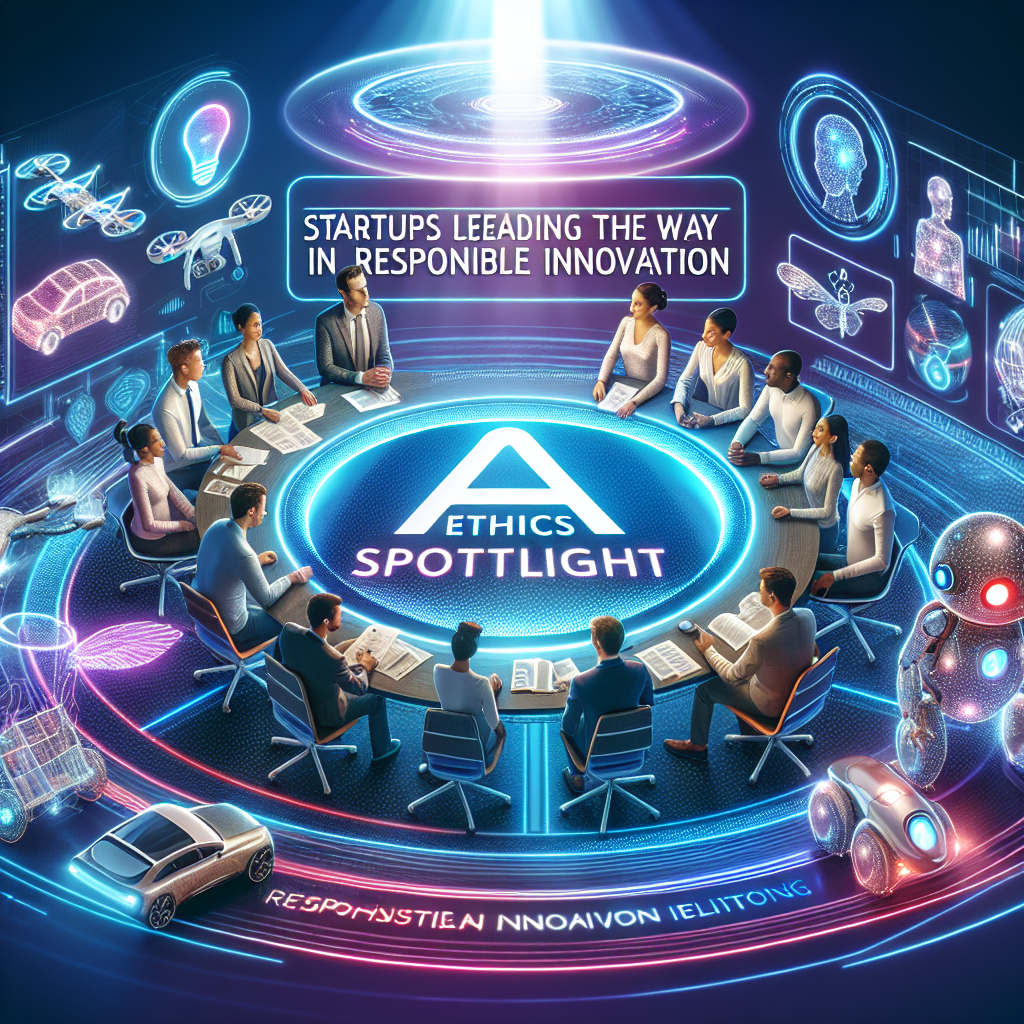As artificial intelligence (AI) becomes more prevalent across various sectors—from healthcare to finance—concerns regarding its ethical implications have gained significant traction. The swift evolution of AI technologies carries potential risks such as bias, privacy issues, and job displacement. In response, a new wave of startups is emerging to address these challenges, creating frameworks and practices aimed at fostering responsible innovation. This article explores how these trailblazing companies are spearheading efforts in AI ethics.
1. The Imperative of Ethical AI
The widespread impact of AI on society necessitates a comprehensive understanding of its ethical implications. Instances of algorithmic bias, where AI systems perpetuate societal inequalities, highlight the critical need for accountability in AI development. Furthermore, with large quantities of personal data utilized for training AI models, privacy concerns take center stage. Ethical AI transcends mere jargon—it’s vital for building trust among users and ensuring fair outcomes.
2. Startups Committed to Responsible AI
Several startups are leading the charge in this movement, embedding ethical considerations into their AI innovations:
a. Pymetrics
Pymetrics harnesses neuroscience and AI algorithms to refine hiring processes. The company conducts assessments based on cognitive and emotional traits, aiming to eliminate bias commonly found in traditional hiring practices. By leveraging AI to objectively analyze data, Pymetrics fosters diversity and inclusion in the workforce.
b. Truera
Truera democratizes AI model performance by providing tools that help organizations understand and elucidate their AI systems. Their platform prioritizes model interpretability, ensuring stakeholders comprehend decision-making processes. This transparency enhances accountability and nurtures trust among users and organizations.
c. Mindstrong Health
In the realm of mental health, Mindstrong Health leverages AI to elevate patient care while adhering to ethical standards. The platform utilizes smartphone data to monitor mental health conditions and provide tailored interventions, ensuring privacy and security through strong data protection measures.
d. Zeguo
Zeguo is at the forefront of establishing ethical AI by delivering a platform that emphasizes fairness, accountability, and transparency. Their AI solutions assist businesses in identifying and mitigating biases in their algorithms, guaranteeing compliance with ethical standards and regulatory frameworks.
3. Establishing Ethical Frameworks
These startups understand that ethical considerations must be integrated systematically into their operational practices. This involves prioritizing:
-
Diverse Teams: Forming teams with individuals from varied backgrounds, including marginalized communities, can reduce biases and enrich perspectives in AI development.
-
Regular Audits: Conducting regular audits of AI models aids in identifying biases and inconsistencies, allowing companies to continuously refine their systems.
- User Engagement: Since end-users are often significantly impacted by AI technologies, startups are involving them in the development process. Feedback loops are crucial in ensuring that the final product meets user needs and societal standards.
4. Collaboration is Essential
The pursuit of ethical AI is not a journey any single entity can manage alone. Numerous startups are collaborating with academic institutions, non-profits, and regulatory bodies to share knowledge and establish best practices. Initiatives like the Partnership on AI—a coalition comprising tech giants, academia, and civil society—aim to set norms and standards governing the responsible utilization of AI.
5. The Road Ahead
As the landscape of AI continues to evolve, startups play a pivotal role in shaping its ethical dimensions. By focusing on responsible innovation, these companies not only create superior products but also contribute to a broader shift toward a more equitable society.
In summary, the initiatives undertaken by startups in the domain of AI ethics represent a promising trajectory for the future of technology. Their dedication to confronting the challenges posed by AI through responsible innovation not only establishes industry benchmarks but also significantly contributes to building public trust and fostering positive societal impact. Looking forward, it is essential for all stakeholders—governments, corporations, and individuals—to support and sustain these efforts, ensuring that AI acts as a force for good.

